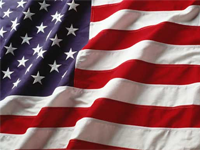 Poker players in the United States thought that they had it rough after the passing of the Unlawful Internet Gambling Enforcement Act (UIGEA) in 2006. This law put severe restrictions (in most cases, an outright ban) on US banks, preventing them from funding online accounts used for poker and other forms of gambling. While many US poker players found ways around this, either through using credit/debit cards or an e-wallet (such as epassporte, which has since been shut down, PayPal, Moneybookers, or any of countless others), the time that it took to transfer money lengthened, and the process in general became more difficult. The UIGEA also made it illegal for most online poker sites to accept payment from US players, although most considered the potential gain well worth the risk. Finding poker sites accepting US players became more difficult, as many of them pulled out of the US market entirely. Still, dedicated US players moved forward.
Poker players in the United States thought that they had it rough after the passing of the Unlawful Internet Gambling Enforcement Act (UIGEA) in 2006. This law put severe restrictions (in most cases, an outright ban) on US banks, preventing them from funding online accounts used for poker and other forms of gambling. While many US poker players found ways around this, either through using credit/debit cards or an e-wallet (such as epassporte, which has since been shut down, PayPal, Moneybookers, or any of countless others), the time that it took to transfer money lengthened, and the process in general became more difficult. The UIGEA also made it illegal for most online poker sites to accept payment from US players, although most considered the potential gain well worth the risk. Finding poker sites accepting US players became more difficult, as many of them pulled out of the US market entirely. Still, dedicated US players moved forward.
Then, in April 2011, on what is now being coined “Black Friday” by gambling aficionados everywhere, the US government struck again with United States v. Scheinberg et. al. and the accompanying civil case United States v. PokerStars et. al., this time directly targeting the leading websites for internet gambling– PokerStars.com, Full Tilt Poker, and Absolute Poker– claiming that they are guilty of bank fraud, illegal gambling, and laundering billions of dollars worth of money. Likewise, the US government has gone after the owners, CEOs, and other executives of these sites, as well as bank officials from banks in the US.
The EU has questioned the validity of these laws, suggesting that the United States is specifically targeting companies outside the United States, a violation of the World Trade Organization’s non-discrimination policy. According to the EU, if the United States wants to ban internet gambling, that’s one thing, but it’s another entirely to allow it or look the other way in some instances while persecuting those companies that are based in Europe (PokerStars and Full Tilt Poker are both currently based in the United Kingdom). This begs the question– why didn’t the US target other sites, like Lock Poker (famous for the unbeatable Lock Poker bonus, as well as for being the easiest site with which American players can do business), which is licensed in Canada, or Bodog Poker, which is run from the Philippines?
While there are still many poker sites accepting US players, Full Tilt and PokerStars have pulled out of the US market, as the US government had seized their .com domain names and refused to relinquish them until the sites withdrew all their business. Many online poker players, especially those who had their accounts and assets frozen in one of the sites the US went after, are a little wary of playing on other sites. Despite the great incentives offered by other sites, like the Bodog tournaments and the Lock Poker bonus, the potential freerolls and bonus money seem like small potatoes in the face of having one’s assets frozen. American players have seen their money tied up in online accounts for months now, and despite reassurances that the money will be released, the future of online poker for the US seems uncertain.
